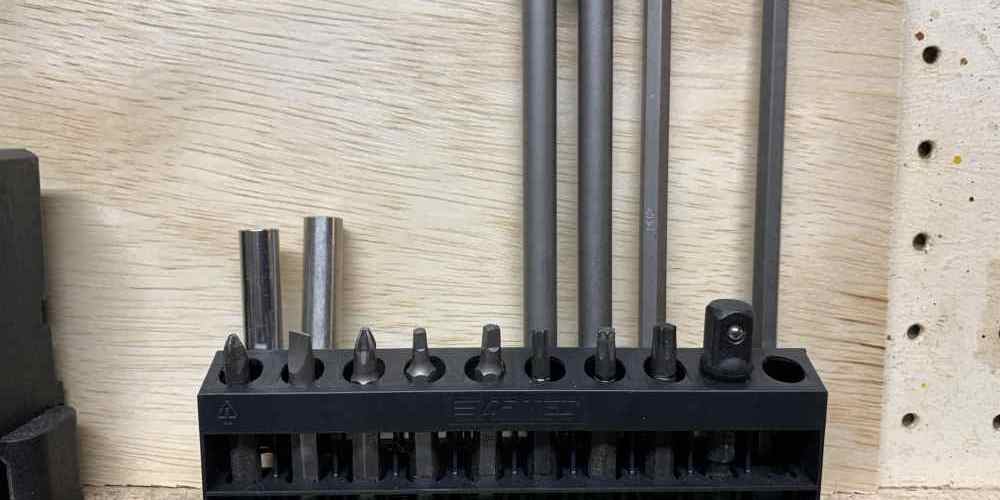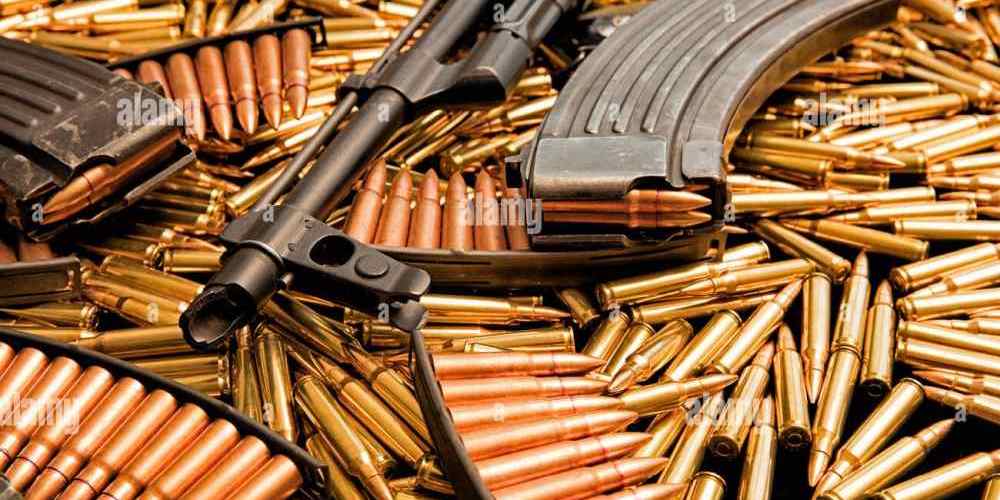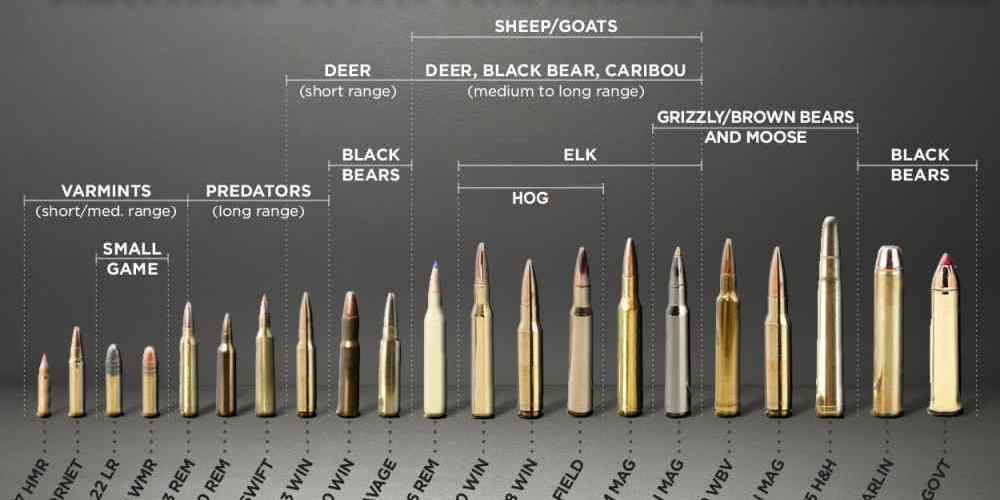“Load up for success with the right rifle ammunition strategies.”
Selecting the Right Caliber for Your Hunting Rifle
When it comes to preparing for a successful hunting trip, one of the most important factors to consider is your rifle ammunition. Selecting the right caliber for your hunting rifle can make all the difference in the field. With so many options available, it can be overwhelming to choose the best ammunition for your specific needs. In this article, we will discuss some strategies for selecting the right caliber for your hunting rifle to ensure a successful hunt.
First and foremost, it is essential to consider the type of game you will be hunting. Different calibers are better suited for different types of game, so it is important to choose a caliber that is appropriate for the size and behavior of the animals you will be hunting. For example, if you will be hunting small game such as rabbits or squirrels, a smaller caliber rifle may be more appropriate. On the other hand, if you will be hunting larger game such as deer or elk, a larger caliber rifle will be necessary to ensure a clean and ethical kill.
In addition to considering the type of game you will be hunting, it is also important to think about the distance at which you will be shooting. Some calibers are better suited for long-range shooting, while others are better for short-range shooting. If you will be hunting in open terrain where long shots are common, a caliber with a flat trajectory and high velocity may be the best choice. On the other hand, if you will be hunting in dense brush or wooded areas where shots are typically taken at close range, a caliber with a heavier bullet and more stopping power may be more appropriate.
Another important factor to consider when selecting the right caliber for your hunting rifle is the recoil of the ammunition. Recoil can have a significant impact on your accuracy and comfort when shooting, so it is important to choose a caliber that you can handle comfortably. If you are a smaller or less experienced shooter, you may want to choose a caliber with less recoil to ensure that you can shoot accurately and confidently.
Finally, it is important to consider the availability and cost of ammunition when selecting the right caliber for your hunting rifle. Some calibers are more popular and widely available, making it easier to find ammunition for your rifle. Additionally, some calibers are more expensive than others, so it is important to consider your budget when choosing the right caliber for your hunting rifle.
In conclusion, selecting the right caliber for your hunting rifle is a crucial step in preparing for a successful hunt. By considering the type of game you will be hunting, the distance at which you will be shooting, the recoil of the ammunition, and the availability and cost of ammunition, you can choose a caliber that will best suit your needs. With the right caliber ammunition in your rifle, you can head into the field with confidence and increase your chances of a successful hunt.
Tips for Properly Storing and Handling Rifle Ammunition
When it comes to hunting, proper preparation is key to a successful outing. One important aspect of pre-hunt prep is ensuring that your rifle ammunition is stored and handled correctly. By following a few simple tips, you can ensure that your ammunition is in top condition and ready to perform when you need it most.
First and foremost, it is essential to store your rifle ammunition in a cool, dry place. Extreme temperatures can cause the gunpowder inside the cartridges to degrade, leading to misfires or other malfunctions. Additionally, moisture can cause the metal casings to corrode, compromising the integrity of the ammunition. To prevent these issues, store your ammunition in a climate-controlled environment, such as a gun safe or ammo box.

Another important consideration when storing rifle ammunition is to keep it away from any sources of heat or flame. Exposure to high temperatures can cause the gunpowder to become unstable, increasing the risk of a dangerous explosion. Be sure to store your ammunition away from heaters, stoves, or any other heat sources to prevent accidents.
In addition to proper storage, it is also important to handle your rifle ammunition with care. When loading cartridges into your rifle, be sure to handle them gently to avoid damaging the casings or the bullets inside. Rough handling can cause dents or scratches on the cartridges, which can affect their performance when fired.
When transporting your rifle ammunition, be sure to use a sturdy container that will protect the cartridges from damage. A hard-sided ammo box is ideal for keeping your ammunition safe during travel, as it will prevent the cartridges from being crushed or jostled around. Additionally, be sure to secure the container in your vehicle to prevent it from sliding or tipping over during transit.
Properly storing and handling your rifle ammunition is essential for ensuring that it performs reliably when you need it most. By following these simple tips, you can keep your ammunition in top condition and ready for your next hunting adventure. Remember to store your ammunition in a cool, dry place, away from heat sources, and handle it gently to prevent damage. With a little care and attention, you can ensure that your rifle ammunition is always ready to deliver a clean, accurate shot when you need it most.
Understanding Ballistics and Bullet Performance
When it comes to hunting, having the right rifle ammunition can make all the difference in your success. Understanding ballistics and bullet performance is crucial for making informed decisions about which ammunition to use for your hunting needs. In this article, we will discuss some key strategies for selecting the best rifle ammunition to ensure a successful hunt.
One of the most important factors to consider when choosing rifle ammunition is bullet weight. The weight of a bullet can greatly impact its performance, including its trajectory, velocity, and energy transfer upon impact. Heavier bullets tend to have better penetration and are more effective at taking down larger game, while lighter bullets may offer higher velocities and flatter trajectories for longer range shooting.
Another key consideration is bullet construction. Different types of bullets are designed for specific purposes, such as expanding upon impact to create a larger wound channel or retaining their shape for deeper penetration. Hollow point bullets are popular for hunting because they expand upon impact, causing more damage to vital organs and increasing the likelihood of a quick, humane kill. Full metal jacket bullets, on the other hand, are better suited for target shooting or hunting smaller game where deep penetration is more important than expansion.
Bullet caliber is also an important factor to consider when selecting rifle ammunition. The caliber of a bullet refers to its diameter, which can impact its trajectory, energy transfer, and stopping power. Larger calibers are typically used for hunting larger game, while smaller calibers are better suited for smaller game or varmint hunting. It is important to choose a caliber that is appropriate for the type of game you will be hunting to ensure a clean and ethical kill.
In addition to bullet weight, construction, and caliber, it is also important to consider the ballistic coefficient of a bullet. The ballistic coefficient is a measure of how well a bullet retains its velocity and energy over distance, which can impact its accuracy and effectiveness at longer ranges. Bullets with higher ballistic coefficients are less affected by wind drift and gravity, making them more accurate and consistent over longer distances.
When selecting rifle ammunition for hunting, it is important to consider the specific requirements of your hunting situation. Are you hunting in dense brush where quick shots at close range are common, or are you hunting in open fields where long-range shots are more likely? Understanding the terrain, weather conditions, and behavior of the game you are hunting can help you choose the best rifle ammunition for a successful hunt.
In conclusion, selecting the right rifle ammunition is essential for a successful hunting experience. By considering factors such as bullet weight, construction, caliber, and ballistic coefficient, you can make informed decisions about which ammunition will best suit your hunting needs. Whether you are hunting large game in the mountains or varmints in the fields, choosing the right rifle ammunition can make all the difference in your success. Happy hunting!
Importance of Regularly Cleaning and Maintaining Your Rifle
When it comes to hunting, having a reliable rifle is essential for a successful outing. One of the most important aspects of maintaining your rifle is regularly cleaning and maintaining it. Neglecting this crucial step can lead to malfunctions, decreased accuracy, and even safety hazards. In this article, we will discuss the importance of regularly cleaning and maintaining your rifle, as well as provide some tips on how to do so effectively.
Regularly cleaning your rifle is important for several reasons. First and foremost, a clean rifle is a safe rifle. Dirt, debris, and residue can build up in the barrel and action of your rifle, causing malfunctions and potentially dangerous situations. By regularly cleaning your rifle, you can ensure that it is in proper working order and reduce the risk of accidents while hunting.
In addition to safety concerns, regularly cleaning your rifle can also improve its accuracy. A dirty barrel can affect the trajectory of your bullets, leading to inconsistent shot placement. By keeping your rifle clean, you can maintain its accuracy and increase your chances of making a successful shot while hunting.
To effectively clean your rifle, you will need a few basic tools and supplies. These include a cleaning rod, bore brush, cleaning patches, solvent, and lubricant. Start by removing the bolt or action from your rifle and running a bore brush through the barrel to remove any fouling or residue. Next, use cleaning patches soaked in solvent to clean the barrel and action, making sure to remove all traces of dirt and debris. Finally, apply a light coat of lubricant to the moving parts of your rifle to ensure smooth operation.
In addition to regular cleaning, it is also important to maintain your rifle by inspecting it for any signs of wear or damage. Check the stock, barrel, action, and scope for any cracks, dents, or other issues that could affect the performance of your rifle. If you notice any problems, it is important to address them promptly to prevent further damage and ensure the safety and reliability of your rifle.
Another important aspect of maintaining your rifle is storing it properly when not in use. Keep your rifle in a cool, dry place away from moisture and extreme temperatures to prevent rust and corrosion. Store it in a secure location, such as a gun safe, to prevent unauthorized access and ensure its longevity.
By regularly cleaning and maintaining your rifle, you can ensure that it is in proper working order and ready for your next hunting trip. Taking the time to care for your rifle will not only improve its performance and accuracy but also increase your safety while out in the field. So, before heading out on your next hunting adventure, take the time to clean and maintain your rifle to ensure a successful and enjoyable experience.
How to Sight In Your Rifle for Accurate Shooting
When it comes to hunting, accuracy is key. One of the most important factors in achieving accuracy is ensuring that your rifle is properly sighted in. Sighting in your rifle is the process of adjusting the scope or sights so that your shots hit the target where you aim. This is crucial for successful hunting, as even the best rifle and ammunition won’t help you if your shots are off target.
Before you head out into the field, it’s important to take the time to properly sight in your rifle. This will not only improve your accuracy, but also increase your confidence in your shooting abilities. There are a few key steps to follow when sighting in your rifle, and taking the time to do it right will pay off in the long run.
The first step in sighting in your rifle is to choose the right ammunition. Different rifles are designed to shoot different types of ammunition, so it’s important to select the right caliber and bullet weight for your rifle. Using the wrong ammunition can affect the accuracy of your shots, so be sure to do your research and choose the best option for your specific rifle.
Once you have selected the right ammunition, it’s time to set up your target. Choose a target that is large enough to see your shots clearly, and set it up at a distance that is appropriate for your rifle and the type of hunting you will be doing. It’s a good idea to start at a shorter distance, such as 25 or 50 yards, and then move back to longer distances once you have dialed in your rifle.
When you are ready to start sighting in your rifle, take your time and be patient. Start by shooting a group of three shots at your target, making sure to aim carefully and consistently. Once you have a group of shots on the target, use a spotting scope or binoculars to determine where your shots are hitting in relation to your point of aim.
If your shots are off target, you will need to make adjustments to your scope or sights. Most scopes and sights have adjustment knobs that allow you to move the reticle up, down, left, or right to compensate for windage and elevation. Make small adjustments at a time, and continue shooting groups of shots until your shots are hitting where you aim.
It’s important to remember that sighting in your rifle is not a one-time process. Changes in temperature, humidity, and other environmental factors can affect the accuracy of your shots, so it’s a good idea to check your zero periodically and make any necessary adjustments.
By taking the time to properly sight in your rifle, you can ensure that your shots are accurate and increase your chances of success in the field. So before you head out on your next hunting trip, be sure to follow these steps and make sure your rifle is dialed in for accurate shooting. Happy hunting!





